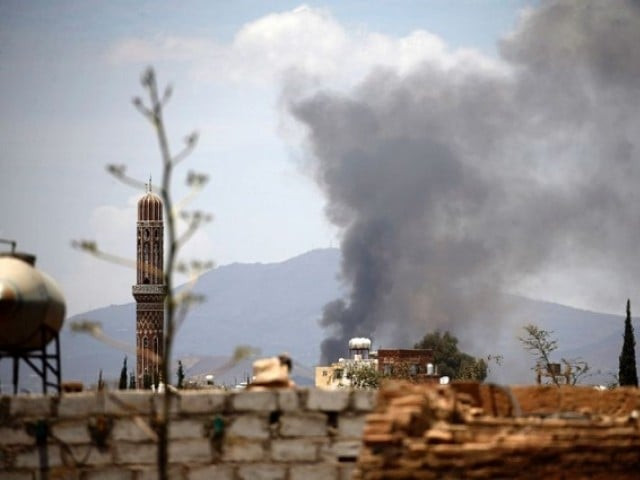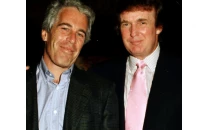Saudi coalition halts refueling deal with US for Yemen war
After Washington's support for the campaign was placed under increased scrutiny following Khashoggi's murder

PHOTO: AFP/ FILE
The move came as warplanes pounded the key strategic port city of Hodeida and after Washington's support for the campaign was placed under increased scrutiny following the brazen murder of dissident journalist Jamal Khashoggi by a Saudi intelligence team.
Pentagon chief Jim Mattis said he supported Saudi Arabia's "decision" after the official Saudi Press Agency said the coalition asked for the "cessation of inflight refueling support" from the United States.
Germany open to selling arms to Saudis despite Yemen war, says report
Riyadh's grinding war in Yemen as caused growing international outcry, particularly after a string of high-profile coalition strikes that have killed scores of civilians, many of them children.
"Recently the Kingdom and the coalition has increased its capability to independently conduct inflight refueling in Yemen," the SPA said.
"As a result, in consultation with the United States, the coalition has requested cessation of inflight refueling support for its operations in Yemen."
Mattis said: "We support the decision by the Kingdom of Saudi Arabia."
In August the defense secretary warned that US support for the coalition was "not unconditional," noting it must do "everything humanly possible to avoid any innocent loss of life."
The Pentagon had provided refueling capabilities for about 20 percent of coalition planes flying sorties over Yemen.
Saudi Arabia and its allies intervened in the conflict between embattled Yemeni President Abedrabbo Mansour Hadi, whose government is recognized by the United Nations, and the Houthis in 2015.
The Houthi on Friday launched fierce barrages of mortar fire as they battled to slow an advance by pro-government forces deeper into the port city of Hodeida, military sources said.
Their chief has vowed his troops would never surrender despite being vastly outnumbered, shelled government positions in the south of the Red Sea city, loyalist officials said.
UN to double food aid to Yemen
But despite the "intense attacks", loyalist forces made fresh advances in eastern sectors of Hodeida.
Over one week into the renewed offensive, civilians reported relentless air strikes, low-flying jets and Apache helicopters, mortars and missiles on the outskirts of the city and within five kilometres (three miles) of its strategic port, the Norwegian Refugee Council said in a statement.
The Iran-backed rebels said their fighters had cut off government supply routes in four sectors of Hodeida province, although there was no confirmation from the loyalist side.
On Friday medical sources said that 110 Houthi and 22 pro-government forces had been killed in 24 hours of violence, bringing to at least 382 the number of combatants killed since the battle for Hodeida intensified on November 1.
Backed by Saudi air raids, loyalist troops for the first time entered residential neighbourhoods on Thursday, using bulldozers to remove concrete road blocks installed by the opposition.
Mattis last month made a surprise call for a ceasefire in Yemen and urged warring parties to enter negotiations within the next 30 days.
The United Nations has now pushed that deadline back to the end of the year.
Nearly 10,000 Yemenis have been killed in the conflict since 2015, according to the World Health Organization. Human rights groups say the real death toll may be five times higher.
UN warns half Yemen's people could soon be on brink of famine
UN agencies say some 14 million people are at risk of famine in the country - described as the world's worst humanitarian crisis, with the World Food Programme saying it will nearly double food aid to the country to avert "mass starvation".
International criticism over US support for Saudi Arabia grew further following the slaying of journalist Jamal Khashoggi in the Saudi consulate in Istanbul.
The US sees Saudi Arabia as a key ally, especially in terms of providing a counter to Iranian influence in the region.



















COMMENTS
Comments are moderated and generally will be posted if they are on-topic and not abusive.
For more information, please see our Comments FAQ